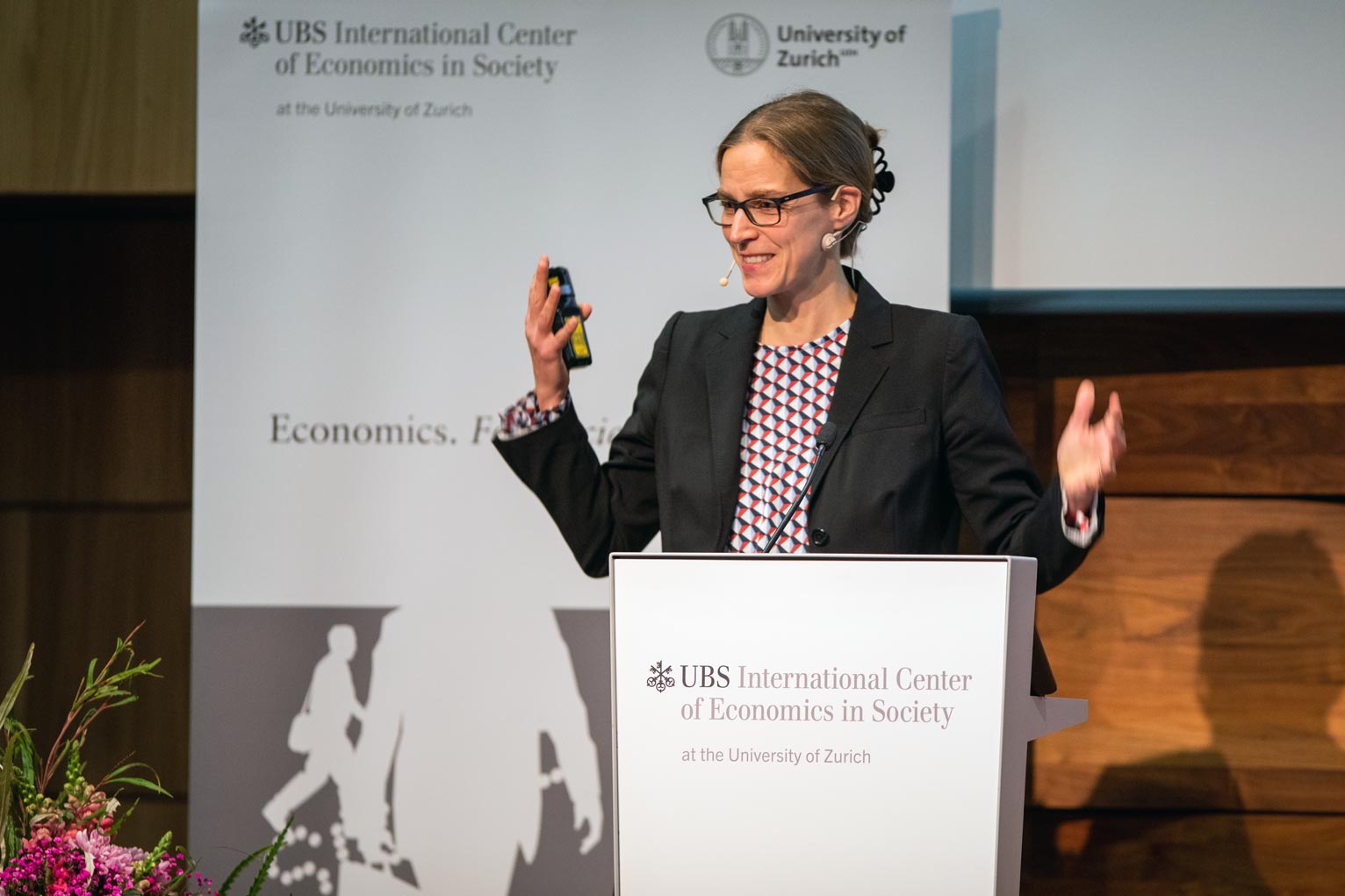Direkt zu
Article
Taxes are the price we pay for living in a safe and organized country; tax competition ensures that this price remains fair. With this statement, former Swiss Finance Minister Kaspar Villiger openend the sixth edition of our “Wirtschaftspodium” in Zurich.
by Maura Wyler
Villiger leaped straight into the depth of the Swiss tax system, explaining its underlying structure by referring to the country’s institutions and culture, like direct democracy, federalism, or redistribution policies. Within the tension field of taxes, he identified four major challenges. First, centralization tendencies lead to increasing conflicts of jurisdiction between the Confederation and the cantons. Second, economic and sociodemographic change threatens to decouple fiscal equivalence. Third, an erosion of autonomy due to globalization and finally, a polarization trend in incomes.
More fairness through redistribution?
Clemens Fuest opened the first part with a keynote on inequality and fiscal redistribution, identifying strong misperceptions regarding inequality. The Swiss for instance, perceive inequality in Switzerland much higher than what it actually is. Looking at the downside of current redistribution policies, Fuest identifies the middle class as the big losers since there is a shift of tax burden from the 1% top earners to the middle earners.
Taxes as steering instrument for woman’s labor participation
Nicola Fuchs-Schündeln’s keynote focused on the influence of taxes on labor supply. Why does the workload of married women vary so much across countries and time? A significant part of these differences can be explained by taxes, as shown in Fuchs-Schündeln's research: The joint or separate taxation of married couples affects the wives’ labor participation.
Following both keynotes, experts from different fields joined the speakers on the podium and discussed fundamental questions of tax fairness and redistribution and taxes as a steering tool, but also hot Swiss tax policy topics such as the “Steuervorlage 17”, NFA, CO2 taxes, and individual taxation. One discussion circled around the difficulty to introduce new taxes – which is why tax administration is so reluctant to abolish any existing taxes. This perspective contrasts with the entrepreneurial view where taxes are indisputably connected with expenditures; thus, from a business perspective if there comes a new tax, an old one must go.
Taxes are the price we pay for living in a safe and organized country; tax competition ensures that this price remains fair. With this statement, former Swiss Finance Minister Kaspar Villiger openend the sixth edition of our “Wirtschaftspodium” in Zurich.
by Maura Wyler
Villiger leaped straight into the depth of the Swiss tax system, explaining its underlying structure by referring to the country’s institutions and culture, like direct democracy, federalism, or redistribution policies. Within the tension field of taxes, he identified four major challenges. First, centralization tendencies lead to increasing conflicts of jurisdiction between the Confederation and the cantons. Second, economic and sociodemographic change threatens to decouple fiscal equivalence. Third, an erosion of autonomy due to globalization and finally, a polarization trend in incomes.
Kaspar Villiger

Clemens Fuest

Nicola Fuchs-Schündeln
